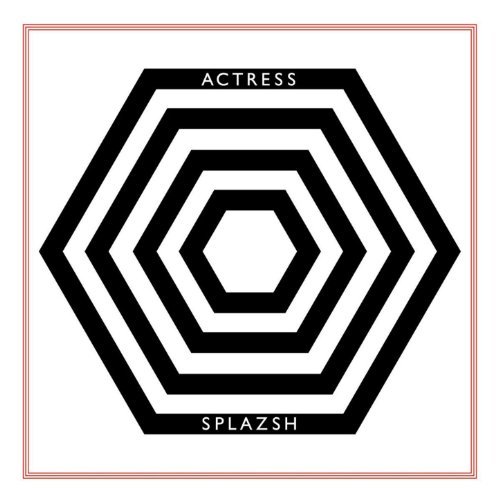
Actress
Splazsh
Release Date: Jun 8, 2010
Genre(s): Electronic, Club/Dance
Record label: Honest Jon's
Music Critic Score
How the Music Critic Score works
Buy Splazsh from Amazon
Album Review: Splazsh by Actress
Great, Based on 5 Critics
Based on rating 4.5/5
In spite of its focus on atmosphere, Darren Cunningham’s first LP as Actress was not a comforting record. Even the gloomiest of dubstep producers aim for structural elegance; Cunningham’s compositions, on the other hand, obfuscate the subtlety of their own design by indulging in aesthetic paradox and stylistic misappropriations. Whereas Burial’s mutilated vocal samples still held to melodic shapes, the dismembered snippets on Hazyville’s “Again the Addiction” were tuneless and sonically jarring.
Based on rating 8.3/10
One of the upshots of dance music's active compartmentalization-- into genres and subgenres and niches aligned with certain kinds of basslines or BPM-- is the exalted space it affords work that jams the system. If an album proves unique, we celebrate it. And then that album makes us think all the more scrupulously about the system it happened to jam.
Based on rating 6/10
Electronic music’s latest “It” kid is Darren Cunningham, founder of the pivotal Werk Discs label and the solo artist known by the transgendered moniker Actress. Since weeks before its release, Cunningham’s latest, Splazsh, has had both lips and ears oscillating nearly in synch with its frantic eccentric vibrations, some even praising the album as a masterpiece. It’ll be hard for the average listener to tell whether Actress lives up to the hype upon first spin, or even second or third plays for that matter.
Opinion: Excellent
An album occupying a rare, pigeonhole-defying space. Matthew Bennett 2010 The line between innovation and indulgence is often invisible. Yet this subjective division can cease to matter where the two thrive on each other’s energy. The uncompromising force that is Actress complicates this zone with an album whose experimental vision further fuels his personal journey to a lonely outpost of the leftfield.
Opinion: Excellent
Beat-centered electronic music’s most interesting days are likely still ahead of it. Kraftwerk’s robo-pop and Manuel Göttsching’s E2-E4 long ago provided the primordial soup for the later, more austere and experimental European versions of techno and house – which themselves subsequently spawned a plethora of subgenres – and the noteworthy music being made today still feels like a transitional form in the evolution of “dance music. ” I use quotes because it’s difficult to recognize anything with a persistent 4/4-based beat as anything but dance music, even as the best recent extrapolations of this tradition deprioritize danceability in favor of deepening the textural field.
'Splazsh'
is available now

